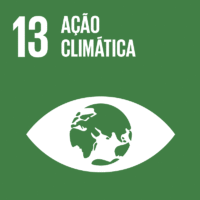Ciência_Iscte
Publicações
Descrição Detalhada da Publicação
Socioecos: Climate change, sustainability and socio-ecological practices : Conference Proceedings
Ano (publicação definitiva)
2024
Língua
Inglês
País
Espanha
Mais Informação
Web of Science®
Esta publicação não está indexada na Web of Science®
Scopus
Esta publicação não está indexada na Scopus
Google Scholar
Esta publicação não está indexada no Overton
Abstract/Resumo
Social change towards more sustainable lifestyles is not caused and implemented by normative directives and political decisions alone. Cultural production can act as a factor that promotes or prevents public
awareness of the worldwide challenges we face today. On the one hand, high and popular artworks attract local and global audiences and impact the social imaginaries of many. On the other hand, what we call culture
has a long-term effect. Culture constitutes accumulated resources, material or immaterial, which individuals inherit, use, change, add to, and transmit. When socially recognised and valued, the cultural elements
handed down from generation to generation become heritage, linking the already-dead to the not-yet-born.
This brief essay explores why culture matters for sustainability and how creative and artistic endeavours may sharpen people’s consciousness of their actions and aspirations, promote feelings of responsibility for
the environment, and trigger civic agency in the face of a climate and ecological emergency. The argumentative framework draws from recent developments in the disciplinary subfields of the sociology of culture and the arts and the interdisciplinary field of cultural studies.
These pages also approach the so-called ecological turn in the arts, demonstrating its plausibility through empirical analyses of examples from the plastic, visual, and performing arts that currently cover an
array of environmental topics, from natural disasters to climate change, helping us cope with the precariousness of near and distant scenarios. All art pieces were selected from a single-case study conducted in Quinta do Pisão, a nature park on the outskirts of Cascais, a coastal town west
of Lisbon, in Portugal. Three open-air art installations or interventions, part of the broad movement known as land art or environmental art, are briefly reviewed and contextualised.
The findings, even if quite provisory and limited, reinforce the idea that environmentalism is already established within the art world. The ecological ethics of twenty-first-century artworks are, in fact, integral
to their overall aesthetic value. However, further research is needed to understand how artworks may reach individuals and society and how their webs of significance can be bequeathed to future generations.
Agradecimentos/Acknowledgements
--
Palavras-chave
Arts,Culture,Sustainability,Land art,Quinta do Pisão,Cascais,Portugal
Classificação Fields of Science and Technology
- Sociologia - Ciências Sociais
Contribuições para os Objetivos do Desenvolvimento Sustentável das Nações Unidas
Com o objetivo de aumentar a investigação direcionada para o cumprimento dos Objetivos do Desenvolvimento Sustentável para 2030 das Nações Unidas, é disponibilizada no Ciência_Iscte a possibilidade de associação, quando aplicável, dos artigos científicos aos Objetivos do Desenvolvimento Sustentável. Estes são os Objetivos do Desenvolvimento Sustentável identificados pelo(s) autor(es) para esta publicação. Para uma informação detalhada dos Objetivos do Desenvolvimento Sustentável, clique aqui.

 English
English




